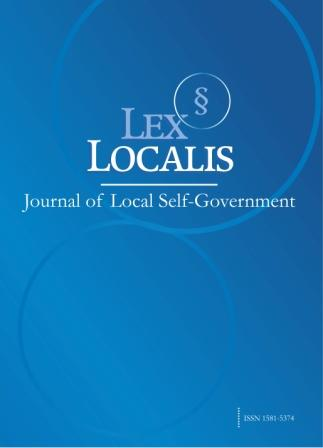Institutional Innovation and Participatory Governance for Sustainable Rural Environmental Revitalisation: A Marxist Ecological Civilisation Framework in Local Self-Governance
DOI:
https://doi.org/10.52152/800159Keywords:
Marxist Ecological Civilisation; Rural Environmental Revitalisation; Participatory Governance; Institutional Innovation; Ecological CitizenshipAbstract
This study examines how Marxist ecological civilisation principles shape institutional and participatory approaches to rural environmental revitalisation in China, focusing on the regional cases of Zhejiang and Fujian. Both regions have faced severe ecological challenges threatening the well-being of their rural populations. In response, local governments have adopted strategies rooted in Marxist ecological citizenship, replacing environmentally exploitative private-sector practices with state-led initiatives prioritising ecological sustainability. These strategies have been characterised by institutional innovation and participatory governance, resulting in the implementation of effective environmental practices. While both regions have demonstrated policy success, Zhejiang’s approach stands out due to its integration of Confucian ethical values alongside Marxist principles. This hybrid model represents a distinctive non-Western paradigm of sustainability, combining community-based engagement with collective ownership to achieve enhanced ecological outcomes.
References
Brautesheth, B. L., & Banik, D. (2022). Transplanting China's ecological civilization to the Belt and Road Initiative: What will it take? Journal of International Development, 35(4), 639-654.
Bridge, S., & Li, D. (2025). A Typology of disaster politics studies for political traditions: Example from studies of late imperial China. International Journal of Disaster Risk Reduction, 105559, 125.
Chen, D. (2025). China's Eco-Civilisation, Climate Leviathan, and Hobbesian Energy Transition. Antipode, 57(3), 830-861.
Cheung, H., Feng, Y. P., Hinsley, A., Ming, T., Possingham, H., & Smith, S. N. (2023). Understanding China's political will for sustainability and conservation gains. People and Nature, 5(1), 57-68.
Cox, K. F. (2016). Geographies, Critical and Marxist, and Lessons from South Africa. Human Geography, 900302, 9(3).
Fujian Forestry Bureau. (2023). Annual Report on Collective Forest Reforms. Retrieved from http://lyj.fujian.gov.cn/zwgk/ndbg/
Fujian Statistical Yearbook. (2023). Socioeconomic data on forest reforms. Retrieved from http://tjj.fujian.gov.cn/xxgk/ndsj/
Geng, Q., & Lo, K. (2023). Global ecological civilization: An analysis of macro-level policies of the Belt and Road Initiative. Research in Globalization, 100141, 7.
Green Rural Revival Program. (2023). Zhejiang Provincial Government. Retrieved from http://www.zj.gov.cn/col/col1229018532/index.html
Hansen, M. H., Li, H., & Svarverud, R. (2018). Ecological civilization: Interpreting the Chinese past, projecting the global future. Environmental Change, 53, 195-203.
Hu, H., Li, H., Zhang, X., Yuan, Y., & Jia, K. (2024). How rent facilitates capital accumulation: A case study of rural land capitalization in Suzhou, China. Land Use Policy, 107063, 139.
Huang, G., & Zhoa, R. (2021). Harmonious discourse analysis: approaching peoples’ problems in a Chinese context. Language Sciences, 101365, 85.
Juanjuan, J., & Wei, P. (2024). The path of promoting rural ecological revitalization under the perspective of system concept. Ecological Frontiers, 44(5), 950-957.
Li, S., Zhang, Y., Long, H., & Xu, L. (2024). Understanding rural gentrification in China: Examining the evolving concept and comparative insights. Journal of Rural Studies, 103301, 108.
Liu, C., Chen, L., Vanderbeck, R. M., Valentine, G., Zhang, M., Driprose, K., & McQuid, K. (2018). A Chinese route to sustainability: Post socialist transitions and the construction of ecological civilization. Sustainable Development, 26(6), 741-748.
Liu, G., & Nie, W. (2023). The role of Marxist ecological view on environmental protection in China. Energy & Environment, 177738, 36(1).
Mantzari, E., Smyth, S., & Lanka, S. (2025). Classical Marxist accounting research: A literature review and directions for future research. Critical Perspectives on Accounting, 102789, 101.
Ministry of Ecology and Environment. (2023). Annual Report on Rural Environmental Quality. Retrieved from https://www.mee.gov.cn/hjzl/sthjzk/
Niu, S., Lyu, X., Gu, G., Pen, W., Wang, Y., Xue, P., & Soldoonkov, S. Y. (2024). A framework for quantification and integration of green development of cultivated land in China: From the perspective of adaptability-vitality-resistance. Land Degradation & Development, 35(5), 1938-1959.
Peng, J., Zhou, Y., Zhang, Z., Luo, Y., & Cheng, L. (2023). The development logic, scientific Connotation, and promotion path of rural eco-industries in China. Heliyon, e17780, 9(7).
Rodenbiker, J. (2020). Urban Ecological Enclosures: Conservation Planning, Peri-urban Displacement, and Local State Formations in China. International Journal of Urban and Regional Research, 44(4), 691-710.
Sachs, I. (1977). Civilization Project and Ecological Prudence. Alternatives: Global, Local, Political, 3(1), 1-18.
Savransky, M. (2022). Ecological uncivilization: Precarious world-making after progress. The Sociological Review, 84782, 70(2).
UN Sustainable Development Goals. (2023). Reference to Fujian’s alignment with SDG 15. Retrieved from https://sdgs.un.org/goals/goal15
Wang, K., Chung, C. K., Xu, J., & Long, Z. (2024). Reconceiving China's urban economic transition through symbiotic state-firm dynamics: An integrated perspective from urban governance and global production networks. Cities, 104974, 150.
Wang, L., & Wang, K. (2022). Understanding China's political will for sustainability and conservation gains. Discrete Dynamics in Nature and Society, 3806576, 2022(1).
Wang, L., & Zainal, A. Z. (2024). Attitude in ecological evaluations of college English textbooks in China. Linguistics and Education, 101342, 83.
Wang, W., Wu, F., & Zhang, F. (2024). Metropolitanization through making ‘new metropolitan plans’ in China. Habitat International, 102987, 143.
Xie, L., Flynn, A., Mullins, M. T., & Cheshmehzangi, A. (2019). The making and remaking of ecological space in China: The political ecology of Chongming Eco-Island. Political Geography, 69, 89-102.
Zhejiang Bureau of Statistics. (2023). Annual Report on Rural Eco-Tourism Development. Retrieved from http://tjj.zj.gov.cn/col/col1525563/index.html
Downloads
Published
Issue
Section
License
Copyright (c) 2025 Lex localis - Journal of Local Self-Government

This work is licensed under a Creative Commons Attribution-NonCommercial-NoDerivatives 4.0 International License.








